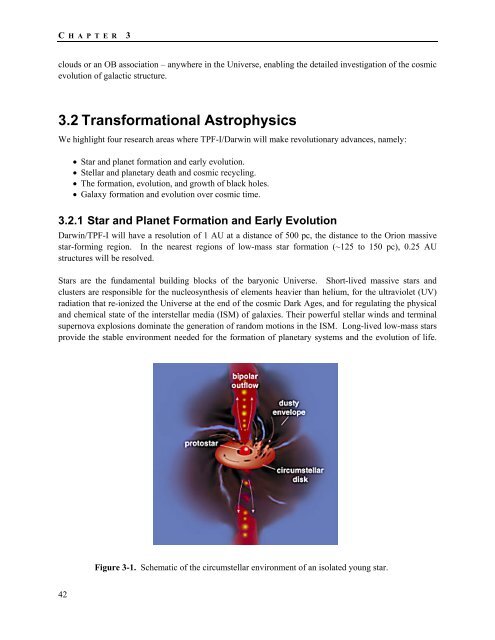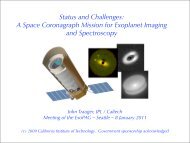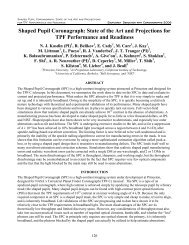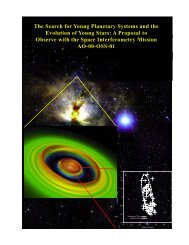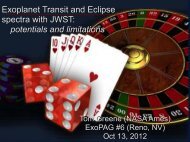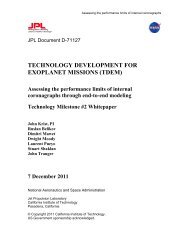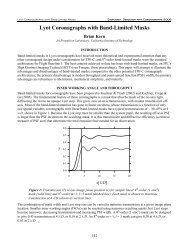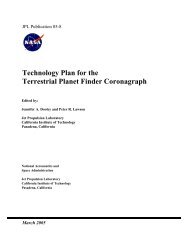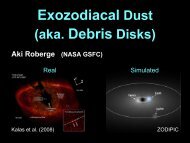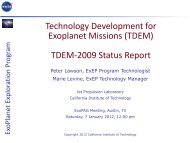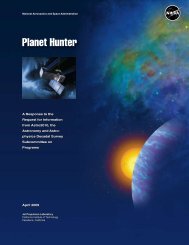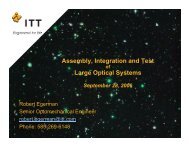TPF-I SWG Report - Exoplanet Exploration Program - NASA
TPF-I SWG Report - Exoplanet Exploration Program - NASA
TPF-I SWG Report - Exoplanet Exploration Program - NASA
You also want an ePaper? Increase the reach of your titles
YUMPU automatically turns print PDFs into web optimized ePapers that Google loves.
C HAPTER 3<br />
clouds or an OB association – anywhere in the Universe, enabling the detailed investigation of the cosmic<br />
evolution of galactic structure.<br />
3.2 Transformational Astrophysics<br />
We highlight four research areas where <strong>TPF</strong>-I/Darwin will make revolutionary advances, namely:<br />
• Star and planet formation and early evolution.<br />
• Stellar and planetary death and cosmic recycling.<br />
• The formation, evolution, and growth of black holes.<br />
• Galaxy formation and evolution over cosmic time.<br />
3.2.1 Star and Planet Formation and Early Evolution<br />
Darwin/<strong>TPF</strong>-I will have a resolution of 1 AU at a distance of 500 pc, the distance to the Orion massive<br />
star-forming region. In the nearest regions of low-mass star formation (~125 to 150 pc), 0.25 AU<br />
structures will be resolved.<br />
Stars are the fundamental building blocks of the baryonic Universe. Short-lived massive stars and<br />
clusters are responsible for the nucleosynthesis of elements heavier than helium, for the ultraviolet (UV)<br />
radiation that re-ionized the Universe at the end of the cosmic Dark Ages, and for regulating the physical<br />
and chemical state of the interstellar media (ISM) of galaxies. Their powerful stellar winds and terminal<br />
supernova explosions dominate the generation of random motions in the ISM. Long-lived low-mass stars<br />
provide the stable environment needed for the formation of planetary systems and the evolution of life.<br />
Figure 3-1. Schematic of the circumstellar environment of an isolated young star.<br />
42


